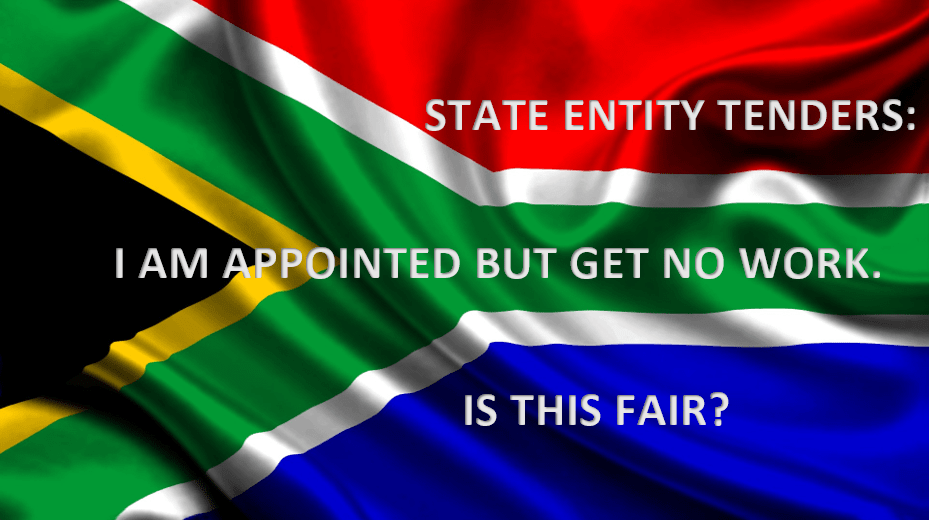
Section 217(1) of the constitution of the Republic of South Africa provides that when contracting for goods or services, organs of state in the national, provincial or local sphere of government or institutions identified in national legislation (state entities) must do so in accordance with a system which is fair, equitable, transparent, competitive and cost-effective. The aforesaid prescribed principles are also reflected in subordinate legislation such as the Public Finance Management Act and Municipal Finance Management Act. Further prerequisites for supplying goods and services to the state entities are often prescribed such as being registered on the central supplier database, providing a valid BBB-EE certificate and having a compliant tax clearance certificate.
In order to avoid having to put each and every requirement for goods and services out to tender as prescribed by legislation, many state entities put out tenders for the panel appointment of contractors for the supply of goods and services for specific periods ranging from two to five years. In other words, during the appointed period, only those contractors on the panel will be invited to supply relevant goods and services to the exclusion of all others.
Every supplier of goods and services will know that it takes a significant amount of time, effort and costs to prepare and submit tenders to these state entities. In many instances, it is a requirement for bidding that pre-bid meetings are attended and that a fee is payable prior to receipt of the tender documents. It is also worth noting that tenders issued by the state entities are often cancelled and/or postponed after the end of the previous contract period giving then current suppliers of goods and services extensions to their contracts that otherwise would have terminated.
If you as a supplier of goods and/or services, despite all the obstacles that you have overcome finally make it onto the panel, it would be reasonable to expect that you, as a panel appointee, will now be given a fair opportunity to access work or supply goods and services for which you have been appointed, subject only to price. This is meant to be done by the relevant state entity issuing requests for quotations to the panel appointees only.
The problem is that this does not happen in practice. Many panel appointees never get the opportunity to provide goods and/or services to the state entity despite their appointment. In fact, many panel appointees despite having contracts in place with the state entity, are never asked to quote for the duration of the contract yet certain panel appointees, seemingly preferred by the state entities, render uninterrupted services and continually provide goods to it while the state entity appears to have complied with Section 217(1) of the constitution by having a tender process for appointment to their panel of goods and services providers in place. Clearly, this process cannot be considered as fair, equitable and transparent if panel appointees are unaware of what goods and/or services are being procured and contracted for by the state entity while they are on the relevant panel of goods and services providers.
It is our considered view that any state entity that has panel appointments for goods and services but fails (subject to very specific and limited exceptions) to provide each panel appointee with an opportunity to quote for goods and services when actually required, or fails to establish a fair process for ensuring work or purchase orders are distributed fairly amongst all panel appointees, or only procures through certain of the panel appointees to the detriment of other panel appointees has failed to comply with Section 217(1) of the constitution.
If you and/or your company have been appointed to the panel of a state entity and have not received any work or orders for the supply of goods or services and/or have not even been given an opportunity to submit quotes for the aforesaid then the following questions must be posed to the relevant state entity:
- Will [●] invite pricing proposals from all its panel appointees for all its future external work/goods requirements?
- Under what circumstances will [●] invite pricing proposals from its panel appointees?
- Under what circumstances will [●] issue direct requests for work/goods without requesting pricing proposals from the other panel appointments?
- What steps and processes are in place to ensure work is evenly distributed amongst panel appointments?
Holding state institutions accountable for failing to comply with Section 217(1) of the Constitution of the Republic of South Africa is by no means an easy task. The Promotion of Administrative Justice Act 3 of 2000 (PAJA) details how such legal proceedings need to be attended to in respect of administrative decisions by officials after all internal remedies have been followed.
Please feel free to contact BBP Law to assist you in determining your rights and remedies in business dealings with state entities.
Barrisford Petersen
barrisford@bbplaw.attorney
Managing Director


Recent Comments